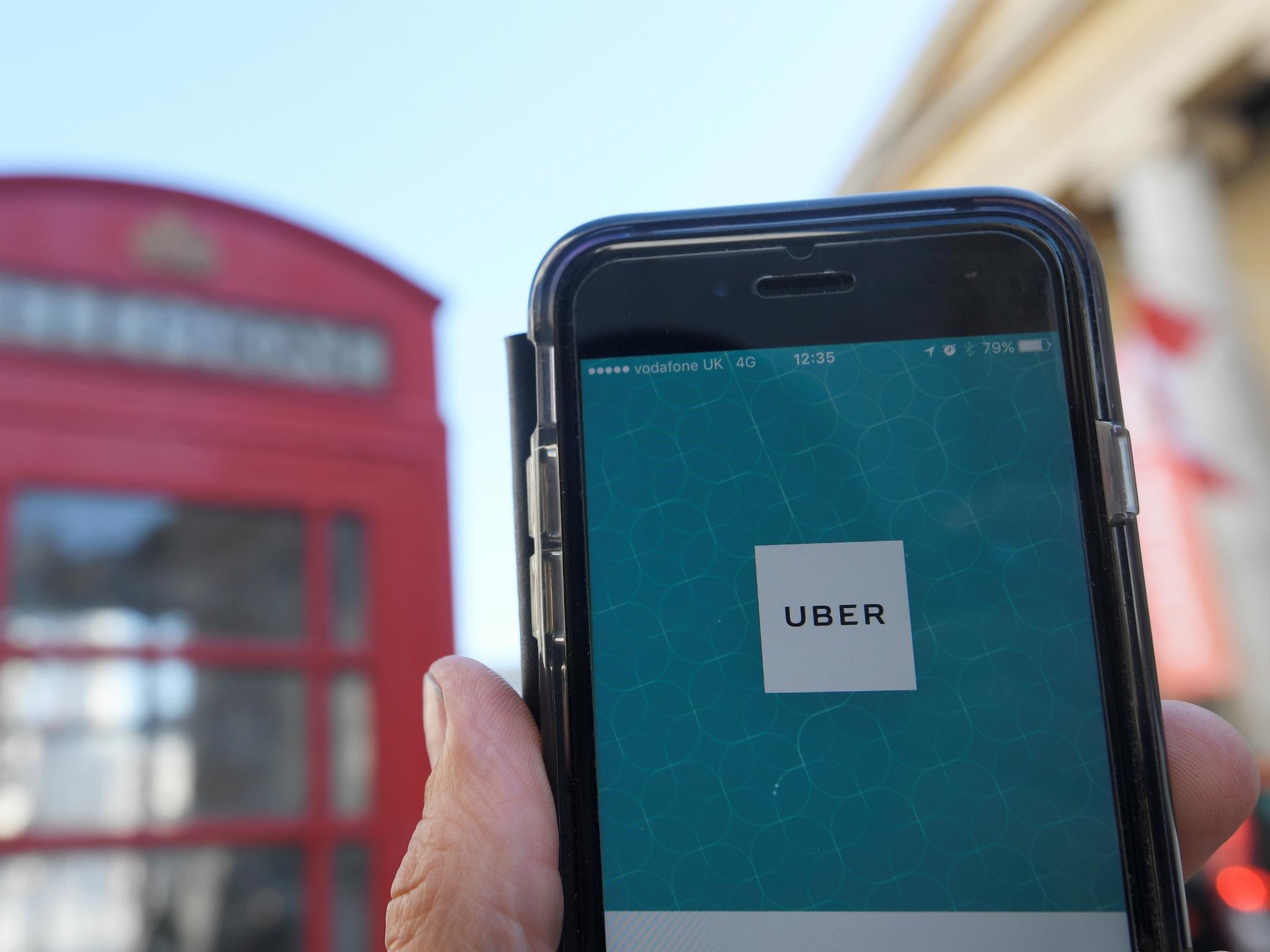Uber helps those with mental health issues – what are they left with now?
One woman I spoke to relied on Uber to get her to work on bad days, when the only way she could make it out was the knowledge that a car – with a rating, a name, and a licence plate – was waiting for her downstairs


Your support helps us to tell the story
From reproductive rights to climate change to Big Tech, The Independent is on the ground when the story is developing. Whether it's investigating the financials of Elon Musk's pro-Trump PAC or producing our latest documentary, 'The A Word', which shines a light on the American women fighting for reproductive rights, we know how important it is to parse out the facts from the messaging.
At such a critical moment in US history, we need reporters on the ground. Your donation allows us to keep sending journalists to speak to both sides of the story.
The Independent is trusted by Americans across the entire political spectrum. And unlike many other quality news outlets, we choose not to lock Americans out of our reporting and analysis with paywalls. We believe quality journalism should be available to everyone, paid for by those who can afford it.
Your support makes all the difference.The oft-repeated quote: when a man is tired of London, he is tired of life. Unfortunately, that’s the problem for so many people in the city.
We’re in the middle of a UK mental health crisis. Latest figures suggest that in the capital, about one in five will suffer from mental ill health: depression and anxiety being the most likely. Numbers vary depending on dataset, and the truth is likely to be distinct from the official statistics, but we also know depression and anxiety are on the rise.
Here’s what you may not have known: many of those suffering have found unexpected solace in Uber.
I’m not here to debate the rights and wrongs of TfL’s decision not to renew Uber’s licence. Ben Chu argued eloquently for the importance of regulating a socially embedded profession, while Kirsty Major rightly pointed out that Uber had shirked its responsibilities for far too long. Not nearly enough people have been arguing that your average safety-conscious woman is about as likely to call a random minicab, or stand on a street corner trying to hail a black taxi, as they are to go into a dark alleyway with a stranger.
But my research suggests that Uber has been providing a valuable – and currently irreplaceable – service to those living with mental ill health.
Anyone who’s suffered from depression knows the physical, mental and emotional strain of simply getting from A to B, or even out of the house. The catch-22? Activities that can alleviate symptoms, such as exercise, socialising with friends or just making it to work, require you to do just that. Being able to summon a car to your home with a few moments’ clicking, at an affordable price, can make a difference between a good day and a bad.
Other common symptoms: effective paralysis in the face of choice, the need for immediate relief and a reluctance to talk – ruling out a plethora of local minicab companies. Hailing a black cab is virtually impossible outside of zones 1 and 2 anyway, and the risk of getting stuck somewhere (such as work, or your own bed), unable to leave, is ever-present.
And consider just how much Uber can help those suffering from anxiety. For the mentally healthy, public transport is a stressful, uncomfortable inconvenience. For the anxiety-ridden, it can be a non-stop nightmare: an insurmountable obstacle to getting anywhere.
With that in mind, it’s logical that many people suffering from depression and anxiety have come to depend on Uber.
One woman I spoke to relied on Uber to get her to work on bad days, when the only way she could make it out was the knowledge that a car – with a rating, a name and a licence plate – was waiting for her downstairs. Sometimes, she said, her driver was the only person she’d speak to that day.
Another suffered from such bad anxiety that she was at risk of having a panic attack when she was out at night. In the midst of a terrible episode, crouched in someone’s front garden in a lonely residential street, she didn’t know where she was or how to get help. But she was able to WhatsApp her location to a friend, who immediately sent an Uber to pick her up and bring her to his house. He was able to watch the car’s progress through the city, knowing she was safe.
And when it all becomes too much? If you need to leave somewhere, or get somewhere, quickly – if you don’t know where you are, or you’re far from public transport and other cab options? Uber has been there to take people in crisis safely home, or even the hospital. Everyone I spoke to highlighted the comfort in the knowledge that Uber was there for them.
Women are almost twice as likely to suffer from an anxiety disorder or depression as men. They also take significantly more Ubers than men. Mental illness is at its highest among teenagers and millennials – also the most likely Uber users. Therefore, the loss of Uber disproportionately affects those who might need it most.
The news that Uber could be gone from London within just a few weeks has hit many of those I spoke to hard. Those suffering from mental ill health come to depend on certain routines and coping mechanisms, and this news is taking a dramatic toll on their stress levels.
TfL have a social responsibility to Londoners, in a way they’ve argued that Uber should, too. So they were well within their rights to decide Uber’s rating was through the floor. But they also had a moral responsibility to make sure there was a viable Uber alternative in place. And they should have done that before they pull the safety net that so many of their own Londoners have come to depend on. There’s much more at stake than they realise.
Join our commenting forum
Join thought-provoking conversations, follow other Independent readers and see their replies
Comments